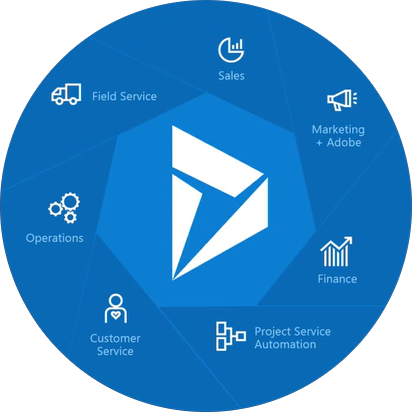Is your Company outgrowing QuickBooks?
Turn to Dynamics 365 Business Central

The initial selection of QuickBooks seemed so obvious, so natural, it was likely a very fast and easy decision. With the passage of time and growth of the business, that fast and easy decision may now feel more like something that was rushed and poorly thought out.
“Finding yourself in this position today, don’t feel surprised, or alone.”
Many, many QuickBooks users love their initial choice, and only with time and experience, does the realization grow that maybe QuickBooks wasn’t the best choice after all.
The simplicity and ease of use that QuickBooks offers can also be its weaknesses later on. Simplicity is revealed as a lack of sophistication, and the easy set-up becomes a liability once you realize that it also means few accounting and auditing controls.
Having spent a few years with QuickBooks, you may recognize one or more of these issues with your own QuickBooks system:
- Maximum records limit reached – QuickBooks imposes limits on how many records the system can process and maintain in its archive. There are limits on the number of employees, posted transactions, etc. Once you reach those limits, your only choice is to start removing the history from QuickBooks.
- An insecure file structure exposes QuickBooks data to direct editing within the data tables themselves. This allows for after the fact “editing” of posted transactions, with no record kept of the changes made. It even allows for the creation of out-of-balance transactions (Credits do NOT equal Debits) in your data.
Looking to go public, or develop a closer relationship with a business lender?
They will likely not want to get involved with QuickBooks, knowing its’ insecurities and vulnerabilities, with direct access to data and no audit trail. Even large CPA firms may decline to perform an audit of QuickBooks, knowing how easy it is to change data.
QuickBooks may have been the best choice available at the time, but the market has grown, and QuickBooks no longer has a monopoly on being easy to use and set-up.
Microsoft Dynamics 365 Business Central offers the same ease of use, same ease of access and quick familiarity to your users, but adds in a robust system that can handle all of your future growth, with no artificial limits on the number of records. The database itself is secured, with no direct access, so no more changes under the covers. Banks, Auditors, and regulators will all have greater confidence in your statements and reports, knowing that the data cannot be altered behind the scenes.
Replace your QuickBooks system with confidence with a move to the Azure-cloud based Dynamics 365 Business Central, and leave QuickBooks where it belongs, as part of your history but not your future.
Dynamics 365 Business Central vs. QuickBooks
Strengths and Weaknesses
QuickBooks Weaknesses
Dynamics 365 Strengths
- Lacks depth of capabilities within purchasing, inventory, manufacturing and distribution, audit control, and advanced reporting. Adding capabilities and service offerings from QuickBooks’ partners
is expensive
- QuickBooks Pro and QuickBooks Enterprise are built on different platforms than QuickBooks Online so upgrading is not seamless
- Minimal business productivity integration skews the solution to accountants, not business owners
- Companies can quickly outgrow QuickBooks’ user
and transaction limits, as well as its limited reporting
capabilities
- Dynamics 365 Business Central is a comprehensive solution with advanced capabilities that handle more complex business processes with secure workflows and improve compliance
- The shared codebase between Dynamics 365 Business Central and Dynamics NAV ensures complete consistency and ease of transition for users between on-premise and cloud versions.
- Deep integration with Office helps enhance productivity and usability for users.
- Dynamics 365 Business Central is built on Microsoft Azure platform with the ability to scale to support growing transaction volumes and more users. Includes a web-based reporting portal with extensive reporting capabilities.

Still not convinced?
The question between Dynamics 365 vs. QuickBooks is a simple one for any small business looking to improve their resource management.
Learn how the flexible features provided by Dynamics 365 can accommodate your ERP expectations.

